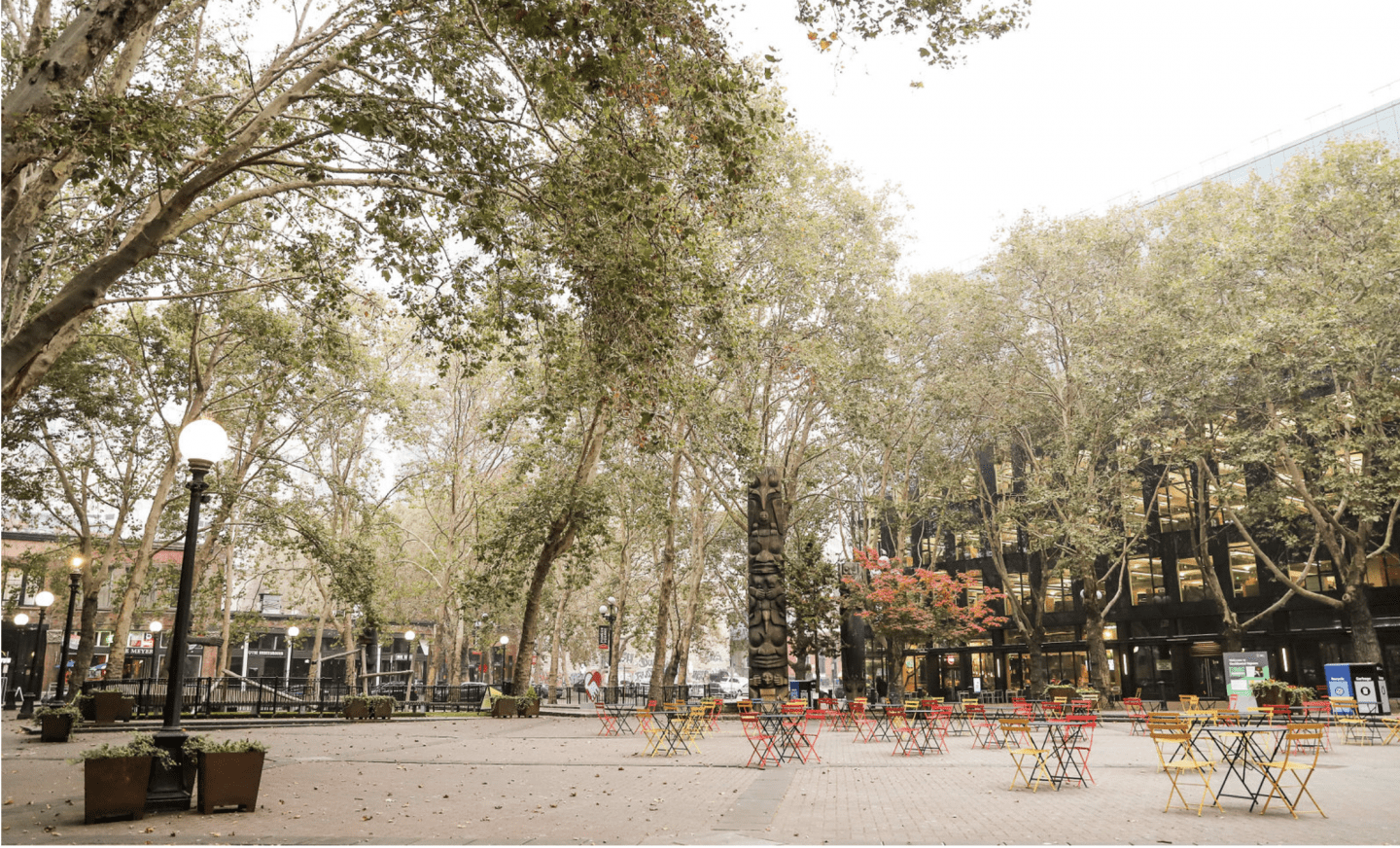Pioneer Square’s LGBTQ+ History
-
While contemporary Capitol Hill is often considered the heart of Seattle’s LGBTQ+ community, many of the city’s earliest and most influential LGBTQ+ spaces were in Pioneer Square. This makes sense: Pioneer Square is a neighborhood of firsts. In 1852, it became the area’s first long-term settlement of non-Indigenous people, which displaced the Duwamish and Suquamish from their ancestral homeland. The waterfront played home to the region’s first steam-powered lumber mill, built by Henry Yesler (1810-1892). In 1914, Smith Tower became the city’s first skyscraper. In those formative years, Pioneer Square was a center for novelty.
As the twentieth century progressed and Seattle residents pressed farther north and east, the city’s first neighborhood lost its luster. People often marginalized by larger society sought opportunities in this once vibrant district, and the area became a meeting place for many displaced people. Among them were members of the LGBTQ+ community. As early as the 1930s, an after-hours club called The Casino catered to LGBTQ+ clientele. Drag queens, gay men, lesbians, gender-queer people: Even though they weren’t “out” in the contemporary sense, they sought safe spaces to express parts of themselves they were often forced to hide.
Even so, this expression wasn’t equitable: During the mid-twentieth century, cisgender men were afforded vastly more opportunities than cisgender women or people who didn’t conform to binary views of gender; the lives of LGBTQ+ people of color were also circumscribed. But even those who visited and operated welcoming places sometimes paid a cost: Neighborhood visitors faced harassment and the threat of violence, while police demanded pay offs from owners of LGBTQ+ businesses.
None of this could keep LGBTQ+ people from gathering in Pioneer Square. Together, they supported neighborhood restaurants and bars, boogeyed in the city’s first disco, joined political organizations, soaked in bath houses, protested anti-LGBTQ+ legislation and celebrated the city’s earliest Pride marches. But time changes every place, and as freedoms expanded in the 1970s and 1980s, and the community dealt with the unexpected crisis of HIV/AIDS, Pioneer Square lost its title as the heart of LGBTQ+ Seattle. Dozens of establishments either shut down or migrated to new neighborhoods. By 1997, the Northwest Lesbian & Gay History Museum Project was leading tours to remind people of the neighborhood’s LGBTQ+ history.
Today, many of the markers of the city’s first LGBTQ+ neighborhood have vanished. But if you know where to look, a few remnants remain. Our tour begins on 2nd Avenue at the former site of the 611 Tavern.
HistoryLink has created a podcast – Square One, as a companion piece to this tour. Join host Rosette Royale as he explores the LGBTQ+ history of Pioneer Square, and hear from people who lived this history firsthand and those who want to preserve it. Find the podcast on Spotify, Apple Podcasts, or your favorite podcast service. A video version is available on HistoryLink’s Vimeo channel.
Tour Stops
611 Tavern
Smith Tower
Mocambo Restaurant
The Double Header
The Casino/Madame Peabody’s Dancing Academy for Young Ladies
Golden Horseshoe Tavern
Silver Slipper Tavern
Occidental Square
Shelly’s Leg
South End Steam Baths
Gay Community Center
611 Tavern
611 2nd Avenue
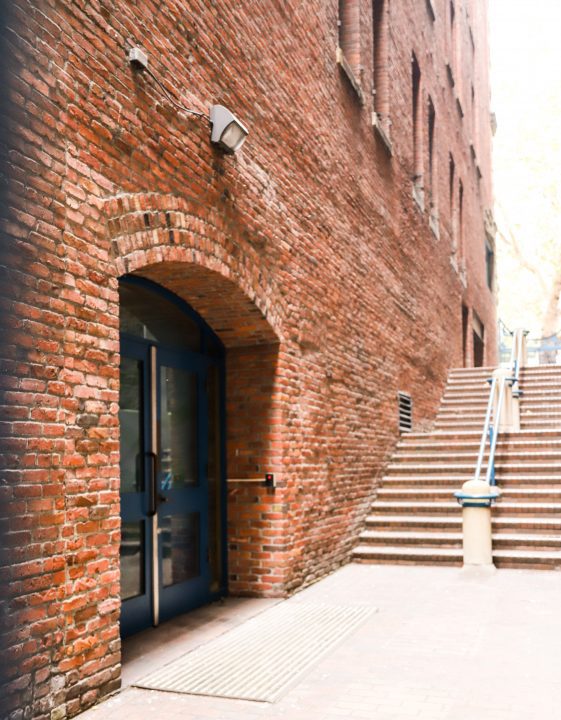
Smith Tower
506 2nd Avenue
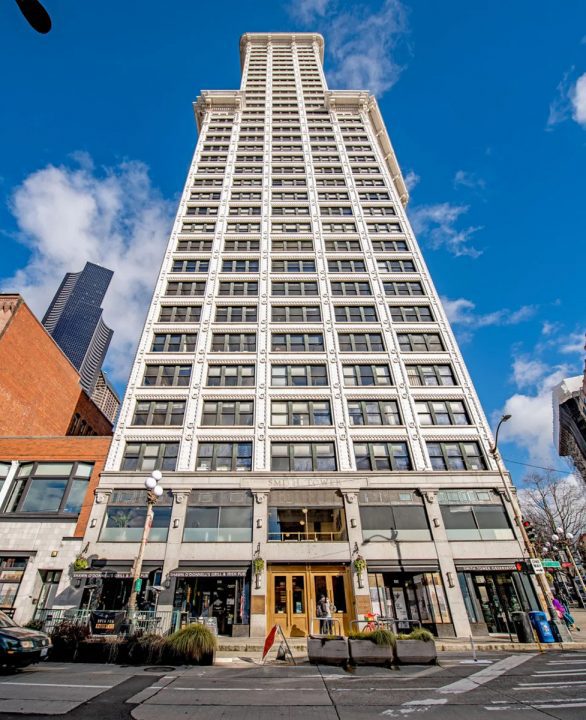
Mocambo Restaurant
203 Yesler Way
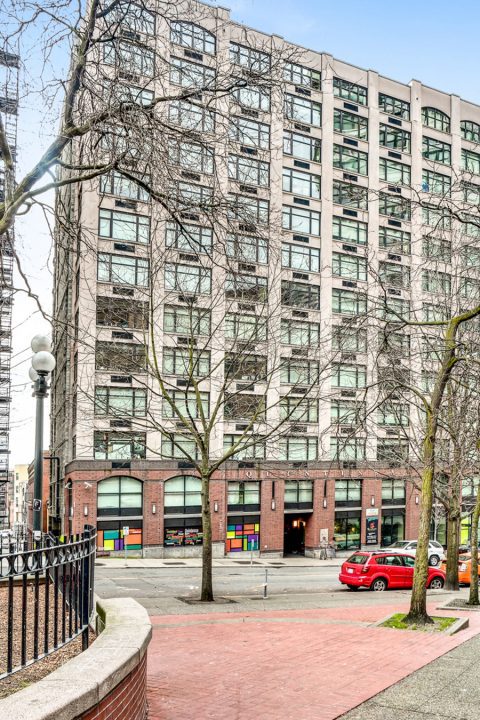
The Double Header
407 2nd Avenue Extension S
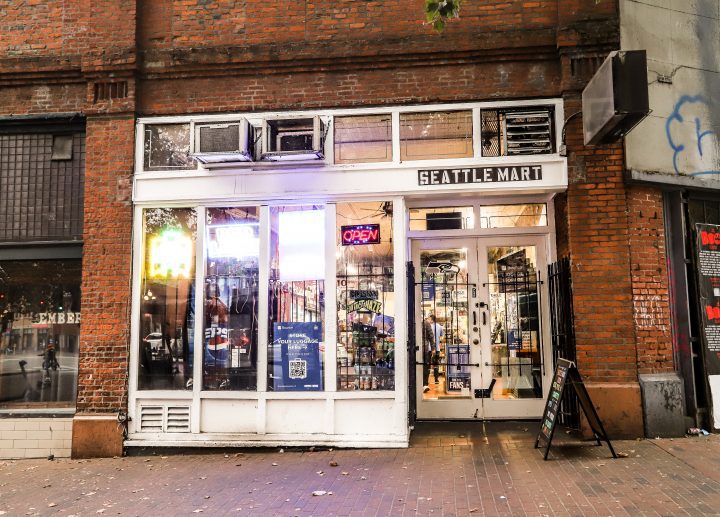
The Casino/Madame Peabody’s Dancing Academy for Young Ladies
172 S Washington Street
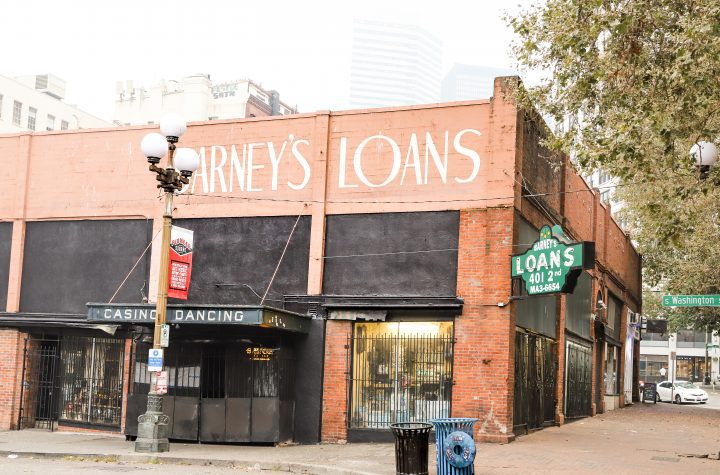
Golden Horseshoe Tavern
207 2nd Avenue S
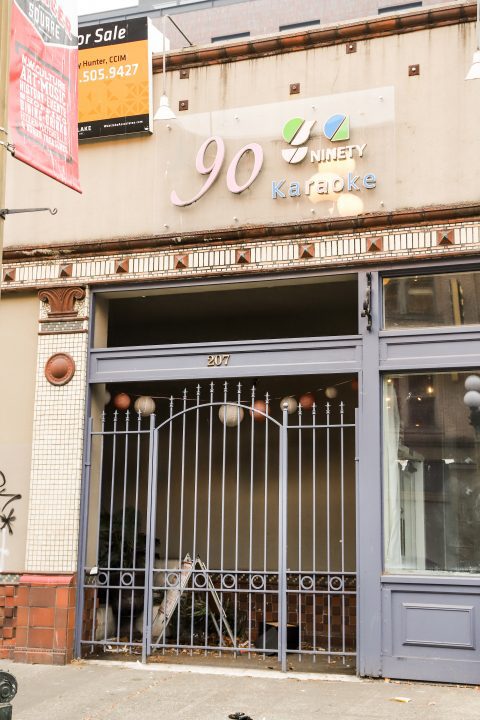
Silver Slipper Tavern
210 S Jackson Street
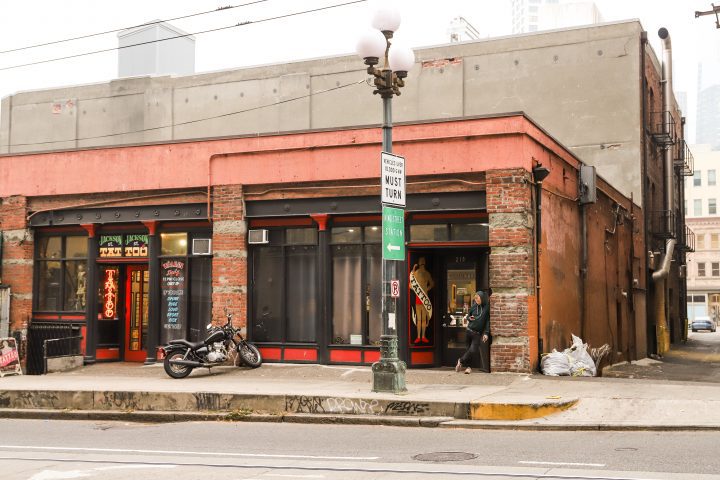
Occidental Square
S Washington St and Occidental Ave S
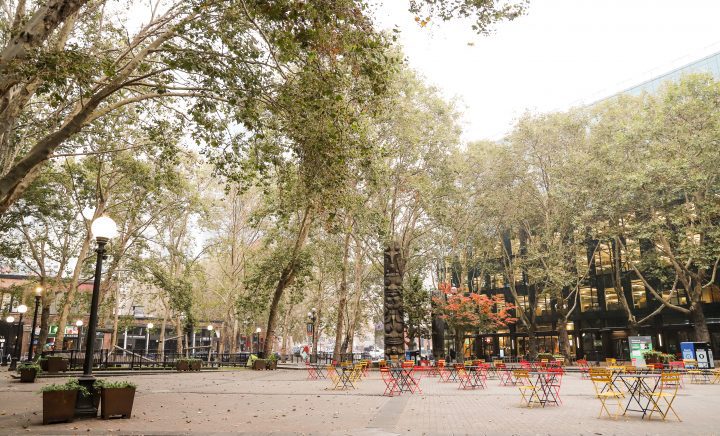
Shelly’s Leg
77 S Main Street
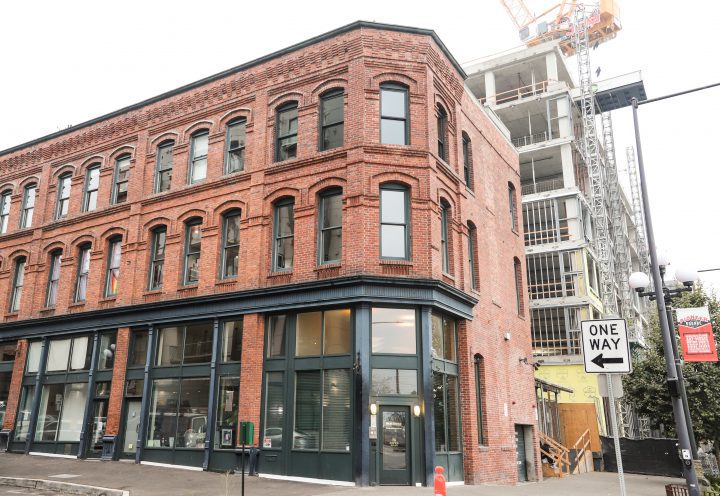
South End Steam Baths
115 1/2 1st Avenue S
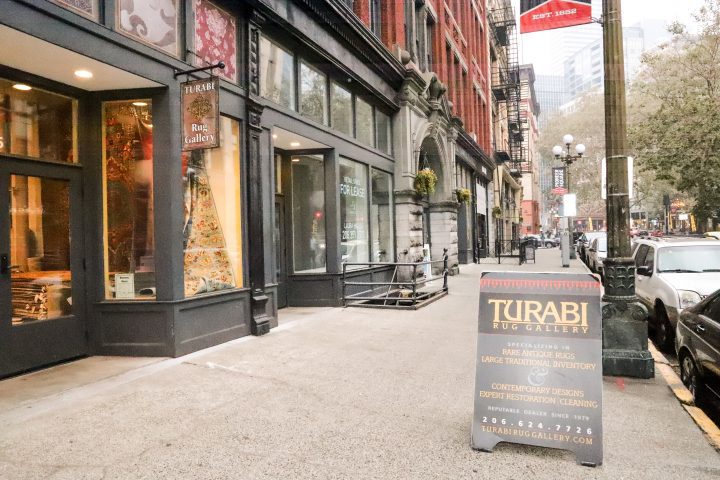
Gay Community Center
102 Cherry Street
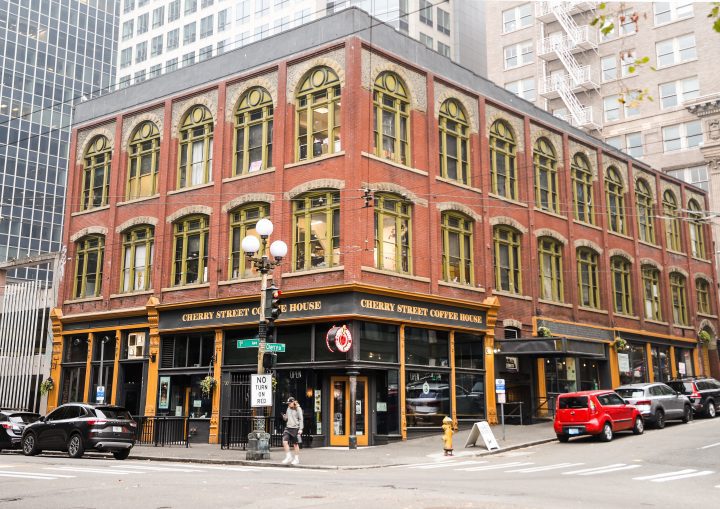

Brought to you by HistoryLink
Generous support for this tour provided by
